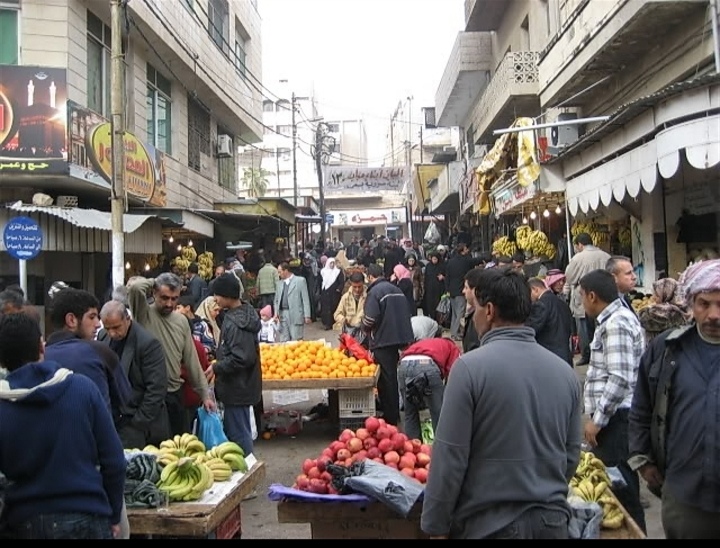

Al-anbat
-Farah Mousa
Translated
by -Rahaf Thaher
Citizens in
Irbid Governorate complained of unprecedented and unjustified increases in the
prices of food supplies, vegetable oils, vegetables and fruits, especially as
we are on the brink of month of Ramadan, which constituted additional burdens
on citizens that exceed their financial capabilities in light of limited
salaries and low wages and the negative effects of the Corona pandemic.
On a tour of the Al-Anbat newspaper’s
journalists inside the commercial market in the governorate and the parallel
markets, she met with citizens to get their views about their supplies and
preparations for the holy month, where they expressed their complaints and
annoyance as a result of the unjustified rises in prices, especially some food
items, vegetable oils, vegetables and fruits.
"Um Yassin "expressed
her anger and disapproval at the price hikes that exceed her purchasing capacity,
especially under the limited salaries to meet her family needs, knowing that
her monthly income no more than two hundred dinars, denouncing the exploitation
of traders to raise prices on the pretext of global rise, asking the government
to intervene to control the market and stop the Insane rise of prices. While Sufian Omar pointed out that the prices
of oils, sugar and milk have increased significantly.
A number of
traders attributed the rise to importers raising prices and monopolizing some
materials to raise their price, pointing out that the reasons are due to
wholesalers and not retailers, and that prices have increased at a rate of
(30%) compared to the prices of last months.
Abu Ali, the
owner of a shop, said that he fell between the hammer of major traders and the
anvil of the citizen who does not know what we are suffering, especially since
we buy goods at high prices and we have no other solutions except to buy at new
prices. In the end, the citizen bears the cost.
The trader,
Mohammed Jumaa, said that the price of a tank of oil (9) liters, rose to 17.5
dinars, the wholesale price. The government set it a price for sale, causing
loss to us, asking the concerned authorities to reconsider the price of some
materials to spare traders losses, explaining that rice (4) kilos is sold at
3.85 dinars, and sugar (10) Kilos with3.25 and Nido Milk 2.25 Kilos with 9.25
Dinars.
In turn, the
wholesaler, Akram Arafat, denied the idea of monopolizing goods in order to
control prices, explaining that prices are governed by price ceilings from the
ministry and any rise in prices that we have nothing to do with.
For example,
a "tank" of oil was 27 dinars two days ago, and they increased it by
two dinars.
The Director
of Irbid Industry and Trade Eng.Abdul Halim Al-Jamra said that the Directorate
of Industry and Trade is intensifying market control and conducting evening and
morning inspection tours. The monitoring staff within the Directorate has been
strengthened and that they carry out field tours, because one of the most
important duties of the Directorate is to control prices so as to prevent exceeding
the prices set by the Ministry of bread, poultry and oils.
He added
that commodity price indicators have been monitored for basic materials and
have been attached to daily indicators of the Ministry of Industry and that the
quantities of foodstuffs available in the markets are lifted on a daily basis.
The
strategic stock in Irbid governorate is followed up, and any shortage or
problem is submitted to the Ministry with daily reports.
A price
ceilings for commodity prices are set among the indicators that are submitted
to the Ministry.
Al-Jamra
indicated that during this month, 90 violations were detected, and we took the
necessary action with the violators regarding non-compliance with the pricing.
The President
of Irbid Chamber of Commerce Mohammed Al-Shouha on his part said that all
materials and goods are available and there is no shortage of quantities
offered in the market and that recent government procedures to reduce the rate
of customs on some goods will have a positive impact on citizens in terms of
the abundance of high goods in the country of origin and the rise Freight
charges, explaining that reducing customs on some goods will be a remedy for
the rise so that citizens can obtain them at reasonable prices.